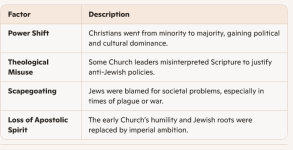History said it constantine changed times and god didn't say in a verse he will change the sabbath for sunday.
 Biblical Sabbath Origins
Biblical Sabbath Origins
• The Sabbath (Saturday) was instituted in Genesis and codified in the Ten Commandments (Exodus 20:8–11).
• Jesus and His disciples observed the seventh-day Sabbath faithfully during His earthly ministry.
 Synopsis: Early Christian Sabbath Observance and Sunday Worship
Synopsis: Early Christian Sabbath Observance and Sunday Worship
In the formative years of Christianity, believers—especially Jewish converts—continued to honor the seventh-day Sabbath (Saturday) as a sacred day of rest, worship, and reflection. Rooted in the creation account and the Mosaic covenant, the Sabbath was observed in continuity with the practices of Jesus and His apostles, who regularly attended synagogue and taught on that day (Luke 4:16; Acts 13:14, 42; 18:4).
However, the resurrection of Jesus on the first day of the week (Sunday) introduced a new spiritual rhythm. Early Christians began gathering on Sundays to celebrate the risen Christ, calling it “the Lord’s Day” (Revelation 1:10). This day was not initially seen as a replacement for the Sabbath, but as a distinct occasion for joy, praise, and fellowship. Acts 20:7 and 1 Corinthians 16:2 reflect early examples of believers assembling and giving offerings on Sunday, likely in honor of the resurrection.
For many decades, both days were observed: the Sabbath remained a time of rest and reverence, while Sunday became a festival of resurrection and renewal. This dual observance reflected the theological tension between continuity with Jewish tradition and the emerging Christian identity. Jewish Christians in Judea especially maintained Sabbath customs, even attending synagogue regularly.
Over time, as Christianity spread among Gentiles and distanced itself from Judaism—especially under Roman influence—Sunday gained prominence. By the fourth century, Emperor Constantine declared Sunday a public day of rest, and church councils like Laodicea discouraged Sabbath observance, framing it as “Judaizing”.
Yet in the earliest centuries, the faithful honored both days: Saturday for divine rest, and Sunday for resurrection glory. This rhythm embodied both covenantal obedience and redemptive celebration—a pattern that speaks powerfully to the spiritual endurance and theological depth of the early church.
 Early Christian Practice
Early Christian Practice
• After Christ’s resurrection (on a Sunday), early Christians began gathering on the “first day of the week” to commemorate that event (Acts 20:7; 1 Corinthians 16:2).
• This day became known as “the Lord’s Day” (Revelation 1:10), but it was not yet a replacement for the Sabbath—it was more of an additional observance.
 Roman Influence and Constantine’s Decree
Roman Influence and Constantine’s Decree
• In A.D. 321, Emperor Constantine issued a civil decree making Sunday a day of rest across the Roman Empire.
• This was partly influenced by sun worship (Sunday = “day of the sun”) and a desire to unify religious practices under imperial authority.

Church Councils and Anti-Judaic Sentiment
• The Council of Laodicea (circa A.D. 365) formally discouraged Sabbath observance, declaring it unlawful to “Judaize” by resting on Saturday.
• Church fathers like Augustine and Tertullian reinforced Sunday as the new day of worship, citing church authority rather than scriptural mandate.
 Theological Justifications
Theological Justifications
• Some argued that Sunday symbolized the “new creation” inaugurated by Christ’s resurrection.
• Others viewed the Sabbath as part of the Mosaic covenant, no longer binding under the New Covenant.
 Gradual Adoption
Gradual Adoption
• The transition was not immediate. For centuries, many Christians observed both Saturday and Sunday.
• By the Middle Ages, Sunday had become the dominant day of worship in Western Christianity, largely due to ecclesiastical authority rather than biblical command.

